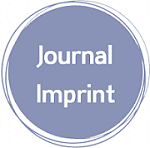Florence Nightingale’s Nursing and Health Care: The Worldwide Legacy, As Seen on the Bicentenary of Her Birth
Abstract
Aim: The aim of this article is to articulate the distinctive features on the Nightingale School of Nursing on the occasion of the 2020 bicentenary of her birth. Design: This is a historical study, based on all the available printed and archival sources of Nightingale’s writing. Methods: The article draws on Nightingale sources (full books, articles, chapters, pamphlets and unpublished letters in more than 200 libraries and archives worldwide) published in The Collected Works of Florence Nightingale, 16 volumes, peer-reviewed; transcriptions are available on its website [1]. Results: Nine key findings are discussed in the article: (1) how different Nightingale’s nursing was from what was called ‘nursing’ at the time; (2) that the central role of training allowed nursing to move from being a women’s profession to being open to all qualified; (3) the evolution of Nightingale nursing as medical science and public health advanced; (4) the academic content in her training; (5) team building in her system; (6) her (often misrepresented) views on germ theory; (7) her late work on preventing cholera; (8) the worldwide influence of her work; (9) her work upgrading workhouse infirmaries and advocacy of what would be later called universal access to health care. Conclusion: Nightingale’s ongoing relevance is evident in many of today’s concerns, such as lack of access to quality health care; the shortage of nurses in the United Kingdom’s National Health Service (and in some other countries) and inadequate wages and salaries of nurses and nurse practitioners; the ongoing dangers in nursing and the need to give nurses a safe working environment (the coronavirus is an extreme example); and inadequate data for health care planning purposes.
Doi: 10.28991/SciMedJ-2021-0301-7
Full Text: PDF
Keywords
References
McDonald, L., ed. (2001–12). Collected works of Florence Nightingale. 16 vols. Waterloo, ON: Wilfrid Laurier University Press. Items cited as CW, with volume and page number. 1: Life and Family. 2: Spiritual Journey. 3: Theology. 4: Mysticism and Eastern Religions. 5: Society and Politics. 6: Public Health Care. 7: European Travels. 8: Women. 9: Florence Nightingale on Health in India. 10: Social Change in India. 11: Florence Nightingale’s Suggestions for Thought. 12: The Nightingale School. 13: Extending Nursing. 14 The Crimean War. 15: Wars and the War Office. 16: Florence Nightingale and Hospital Reform. Available online: https://cwfn.uoguelph.ca/volumes/ (accessed on September 2020).
Meehan, T. C. (2003). Careful nursing: a model for contemporary nursing practice. Journal of Advanced Nursing, 44(1), 99–107. doi:10.1046/j.1365-2648.2003.02772.x.
Meehan, T. C. (2012). The Careful Nursing philosophy and professional practice model. Journal of Clinical Nursing, 21(19pt20), 2905–2916. doi:10.1111/j.1365-2702.2012.04214.x.
McDonald, L. (2014). Florence Nightingale and Irish nursing. Journal of Clinical Nursing, 23(17-18), 2424–2433. doi:10.1111/jocn.12598.
Sullivan, M. C., & Macauley, C. (1995). Catherine McAuley and the tradition of mercy. Notre Dame, IND: University of Notre Dame Press.
Summers, A. (1988). Angels and citizens: British women as military nurses, 1854-1914. Taylor & Francis.
Nightingale, F. (1860) .Notes on nursing: What it is and what it is not. Lippincott Williams & Wilkins..
McDonald, L. (2001). Florence Nightingale and the early origins of evidence-based nursing. Evidence-Based Nursing, 4(3), 68–69. doi:10.1136/ebn.4.3.68.
Turner, T. (1862). Statistics of the general hospitals of London, 1861. Journal of the Statistical Society, 25(3), 384-388.
Lister, J. (1867). On the antiseptic principle in the practice of surgery. The Lancet, 90(2299), 353–356. doi:10.1016/s0140-6736(02)51827-4.
Koch, R. (1880). The etiology of traumatic infectious diseases. Investigations into the Etiology of Traumatic Infective Diseases. Trans. W. Watson Cheyne. London: New Sydenham Society.
Oakley, A. (1993). Essays on women, medicine and Health. Edinburgh: University of Edinburgh Press.
Quain, R., ed. (1883). A dictionary of medicine. London: Longmans, Green.
World Health Organization (1948). Preamble to the Constitution of WHO as adopted by the International Health Conference, New York, 19 June –22 July 1946; signed on 22 July 1946 by the representatives of 61 States (Official Records of WHO, no. 2, p. 100) and entered into force on 7 April 1948. Available online: https://www.who.int/about/who-we-are/frequently-asked-questions (accessed on September 2020).
Seymer, L. (1960). Florence Nightingale’s nurses: The Nightingale School 1860–1960. London: Pitman Medical.
Smith, F.B. (1982). Florence Nightingale: Reputation and power. London: Croom Helm.
Croft, J. (1873). Notes of lectures at St Thomas’ Hospital. London: St Thomas/Blades, East & Blades.
Bell, J. (1887). Notes on surgery for nurses. Edinburgh: Oliver & Boyd.
Haffkine, W.H. (1895). Anti-cholera inoculation: Report to the government of India. Calcutta: Thacker, Spink.
Koch, R. (1884) Sechster Bericht der deutschen wissenschaftlichen Commission zur Erforschung der Cholera. (Sixth report of the German scientific commission for research on cholera), Deutsche medizinische Wochenscrift (German Medical Weekly), 10(12): 191–192.
Cook, E.T. (1914). The life of Florence Nightingale. 2 vols. London: Macmillan.
Nightingale, F. (1884). Practical advice in view of the rapid spread of cholera: ‘scavenge, scavenge, scavenge.’ In A.N. Bell, ed., The Sanitarian: A Monthly Magazine Devoted to the Preservation of Health, Mental and Physical¸ 114–15.
Hart, E. The cholera: Cholera and our protection from it. (1892). BMJ, 2(1653), 562–567. doi:10.1136/bmj.2.1653.562.
Cholera and our protection from it. The Times (2 September 1892), 9.
Robb, I.H. (1893). Nursing: Its principles and practice for hospital and private use. Philadelphia: W.B. Saunders.
Nightingale Society (n.d.). Kofoworola Abeni Pratt: From the first black nurse in the NHS to Minister of Health for Lagos State. Available online: http://nightingalesociety.com/backgrounders/8-kofoworola-abeni-pratt/ (accessed on September 2020).
Godden, J. (2001). A ‘lamentable failure’? The founding of Nightingale nursing in Australia, 1868–1884. Australian Historical Studies, 32(117), 276–91. doi.org/10.1080/10314610108596165.
Godden, J. (2006). Lucy Osburn: A lady displaced: Florence Nightingale’s envoy to Australia. Sydney: Sydney University Press.
Baly, M.E. (1980). Nursing and social change. 2nd ed. London: Heinemann.
DOI: 10.28991/SciMedJ-2021-0301-7
Refbacks
- There are currently no refbacks.
Copyright (c) 2021 Lynn McDonald









